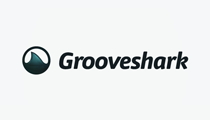This website uses cookies so that we can provide you with the best user experience possible. Cookie information is stored in your browser and performs functions such as recognising you when you return to our website and helping our team to understand which sections of the website you find most interesting and useful.
Business News Digital Grooveshark Timeline Top Stories
Grooveshark launches ‘radio’ app licensed via SoundExchange
By Chris Cooke | Published on Monday 8 December 2014
While some have predicted the imminent demise of Grooveshark in the wake of the digital firm’s legal defeat in one of its disputes with the major labels, the company has announced the launch of a new radio-style app that will seemingly be licensed via the SoundExchange system in the US, thus circumventing the need for direct deals with the record companies.
Grooveshark, of course, has been at the receiving end of plenty of wrath from the music industry by allowing users to upload music to its streaming platform, meaning that it routinely hosts plenty of tracks from labels with which it has no licensing arrangement.
By allowing rights owners to request their content be removed from its library, Grooveshark says it is operating within American copyright law, and it probably is. Though lots of labels reckon that the company is exploiting a loophole in the US Digital Millennium Copyright Act, and would therefore agree with Spotify boss Daniel Ek’s description of Grooveshark as a “piracy service”.
The record companies have sued Grooveshark on two technicalities that prevent the firm from claiming protection by the DMCA, and they won one of those lawsuits back in September. Meanwhile, the labels have forced official Grooveshark apps off the Apple and Google app stores based on the argument that the service infringes copyright, putting it in violation of the IT giants’ respective app platforms’ own terms and conditions.
For much of its history it has seemed like Grooveshark, while aware that it is pissing off most record companies, hoped that, by commanding such a large audience, it could eventually persuade the majors to do a deal making the service indisputably legit, preferably without paying the huge advances that newer entrants to the streaming market have paid to secure their content. One financial backer of Grooveshark once admitted “we bet the company on the fact that it is easier to ask for forgiveness than it is to ask for permission”.
But, while that approach has worked for some tech start-ups in the past, it’s seemed for a while now that the majors – Universal in particular – would much rather see Grooveshark forced out of business, even if that means giving up the opportunity to access the company’s not insignificant userbase. Which presumably means that the “ask for forgiveness later” strategy of getting major label licenses isn’t going so well, even though Grooveshark insists talks are ongoing with the big record companies.
But in the US interactive radio type services like Pandora can be licensed via the collective licensing system, which the labels are obliged to work with by copyright law, meaning that services can go live fully licensed without actually doing any deals direct with the labels (the publishing side of the equation can usually be handled via the collecting societies too, for the time being at least).
Grooveshark’s core service offers too much on-demand functionality to qualify for a SoundExchange licence, but the new service – called Broadcasts – can be licensed that way. It basically puts Grooveshark into competition with Pandora rather than Spotify, though the firm hopes that it can stand out with extra widgets within its app, including allowing users to both chat through the application, and to compile and share their own playlists. It will be a subscription service costing 99 cents a month.
Whether Broadcasts will be able to compete with existing players in the personalised radio market – many of which offer a similar service on an ad-funded free basis – remains to be seen. But it should enable Grooveshark to have an official presence in the Apple and Google app stores, with the firm itself describing Broadcast – according to Dow Jones – as our “first compliant app”. Meanwhile Grooveshark boss Sam Tarantino says “we’re trying to show that we’re doing everything we possibly can to be a legitimate player here”.
Grooveshark’s more controversial Spotify-rivalling service will continue too, though if the firm’s legal woes were to force that side of the business offline, it would be interesting to see if the company could live on – and stay connected to its claimed 30 million users – via the limited functionality but fully legit (in the US) Broadcast app.






